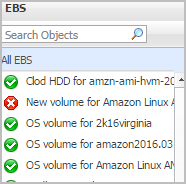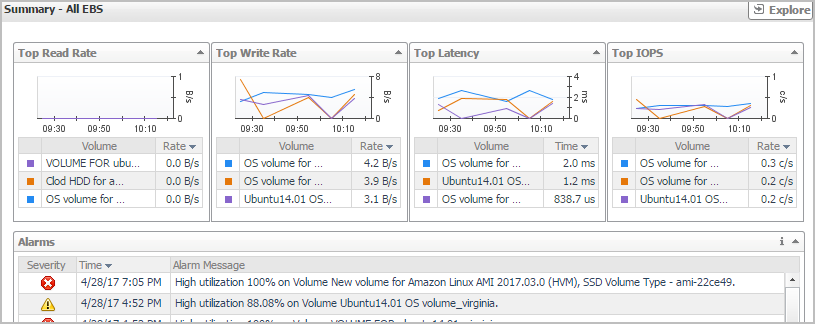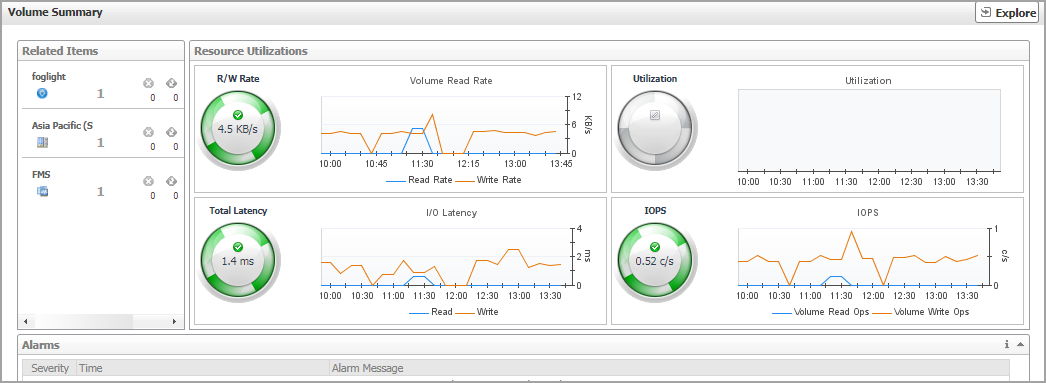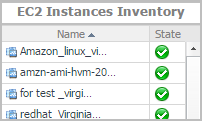EBS monitoring
|
• |
EBS view
The EBS view is a tree view. It lists the EBS instances existing in your environment, and shows their severity state.This view appears on the left when you select the EBS tile in the Actions bar.
Selecting the All EBS node displays the overall resource utilization for all EBS instances in your integrated system and identifies the ones that consume the highest amount of system resources in the Summary - All EBS view on the right. Similarly, selecting a storage node shows storage-specific metrics in the EBS Summary view.
| |||
| |||
| |||
| |||
|
Summary - All EBS view
The Summary - All EBS view displays overall information for all EBS instances in the selected service and identifies the elements that consume the highest amount of resources. This view appears on the right when you select All EBS in the EBS view.
This view consists of the following embedded views:
|
• |
| |||
| |||
| |||
|
|
Shows the top three EBS instances with the highest read rate. | |||
| |||
|
|
Shows the top three EBS instances with the highest write rate. | |||
| |||
|
| |||
|
| |||
|
EBS Summary view
The EBS Summary view displays complete details for an EBS instance. This view appears on the right when you select an EBS instance in the EBS view.
This view consists of the following embedded views:
|
• |
|
Lists the alarms generated against the selected EBS instance. | |||
| |||
| |||
| |||
|
|
Shows the numbers and states of the selected EBS instance running on the monitored AWS environment. | |||
| |||
| |||
| |||
| |||
| |||
|
|
Shows the resource utilization of the selected EBS instance, broken down into four simple views. | |||
| |||
| |||
| |||
|





